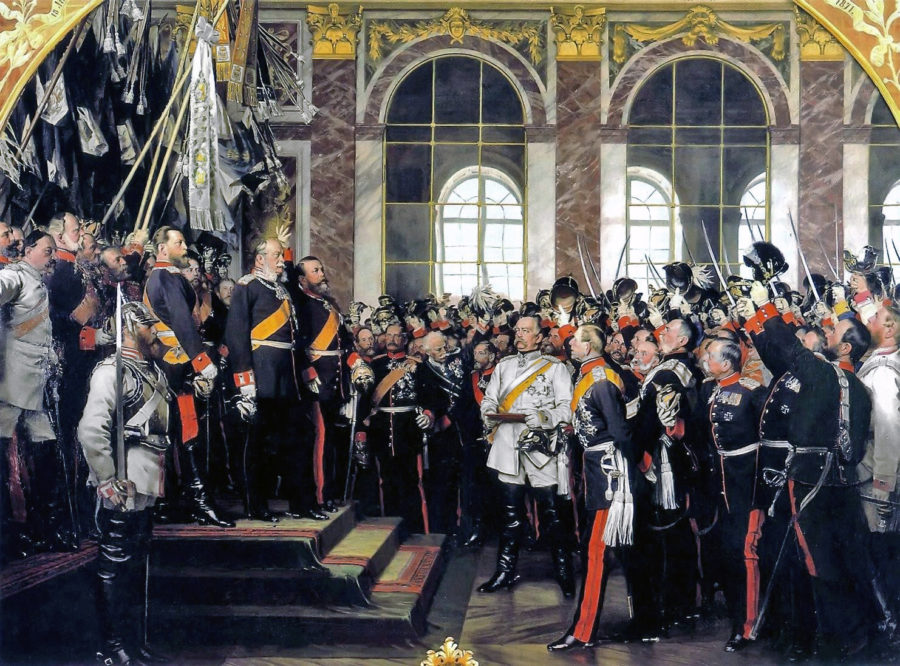This Week in History: September 30
The German Empire was Proclaimed in the Hall of Mirrors of Versailles.
On September 30, 1862, Prussian Prime Minister Otto von Bismarck addressed the Prussian Parliament seeking approval for an increased military budget. His goal — to transform the weak German Confederation into a unified dominant state.
The existing German Confederation of the early nineteenth century consisted of tens of sovereign states, loosely bound together without national or economic unity. By the mid-nineteenth century, anxious Germans called for the creation of a “greater” Germany, merging the sovereign states of the German Confederation into one powerful entity.
By 1848, news of revolutions across Europe roused German nationalism and Prussian revolutionaries called for unification. Prussian King Friedrich Wilhelm IV caved, guaranteeing them constitutional powers and a Parliament. The Frankfurt Assembly began to devise a constitution, but disputes among the German ruling classes plagued any progress or agreements within the assembly. Sensing a deadlock, Friedrich Wilhelm recaptured Berlin and dissolved the Frankfurt Assembly, affirming his royal authority and foiling any plans for unification.
In 1862, Prussian statesman Otto von Bismarck was appointed Prime Minister of Prussia by King Wilhelm I. During his almost thirty years in power, he orchestrated the unification of a German state and worked to establish a German Empire overseas.
After the Napoleonic Wars, Europe’s premier powers established the Concert of Europe to preserve a healthy balance of power. Bismarck’s foreign policy goals centered around weaving around this balance primarily through war and realpolitik (practical policymaking). In 1862, his speech to the Prussian Parliament called for the abandonment of “speeches and majority resolutions” in favor of “iron and blood”: tools to merge the German states.
Granted a larger budget, Bismarck launched an ambitious military campaign, inducing three short wars against Denmark, Austria, and France. In 1862, he engaged Prussia in the Danish War, gaining control of two German duchies. In 1866, he declared a six-week war on Austria, annexing more German states and weakening Austria. Bismarck created the North German Confederation controlled by the kingdom of Prussia.
Finally, Bismarck induced a war with France in 1870, using the cause to unite all the German states under one military banner, drawing in the support of the southern German state. Defeating France within a year, the German Empire was declared in 1871 inside the Hall of Mirrors of Versailles.
This landmark event altered the political and military landscape of Europe. For the first time since Napoleon’s French Empire, the delicate balance of power within Europe had been disturbed. In his next twenty years as Prime Minister, Bismarck bolstered the German position with an aggressive domestic policy focused on economic and social growth. Furthermore, Bismarck’s support for strong nationalistic sentiment persisted until the First World War, where an era of German dominance finally came to a close.
Anant Srinivasan is a senior at Wilton High School and a Managing Editor for the Forum. His interests range from programming to history and politics, and he is eager to share his writing with the Wilton community.

